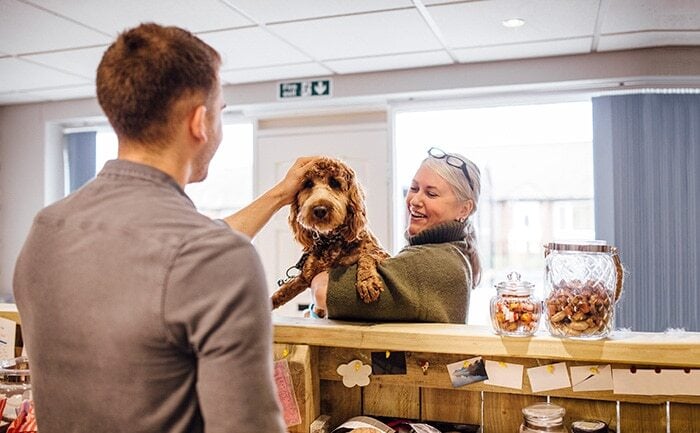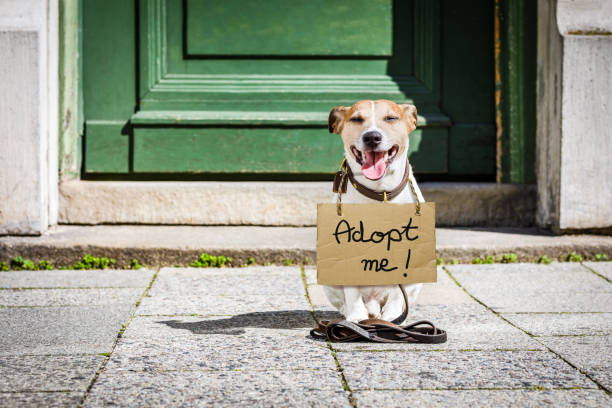Pricing should be predictable—not a puzzle. Yet for many pet-care businesses, applying discounts or adjusting fees can feel inconsistent and time-consuming. Whether you're manually calculating multi-pet discounts or adjusting for late checkouts, unclear pricing can chip away at your revenue, cause confusion and even hurt the trust you've built with pet parents.
Building a thoughtful pricing structure that works for your business, your staff and your clients is much easier with the right tools built to help you streamline your payment processing without confusion. We’ll walk you through six simple strategies to help you manage fees and discounts with confidence and clarity.
Why Fees and Discounts Matter
Every transaction tells a story. For pet-care providers, it's not just about dollars—it’s about setting expectations, reinforcing your brand, and showing your value.
Fees protect your time and team
Your team’s time is valuable. When a pet is picked up an hour late or cancels last minute, you lose more than just a slot for another pet. Reasonable, clearly communicated fees help reduce no-shows, encourage on-time pick-ups, and ensure your schedule stays on track. They're also essential for offsetting real operational costs like processing fees or extended staff coverage during peak times.
Discounts drive loyalty and repeat bookings
Discounts, when used with intention, can strengthen client relationships and increase average spend. Offering incentives like multi-pet savings or extended stay discounts makes pet parents feel valued while encouraging the behaviors you want to see: more bookings, longer visits, and loyalty to your facility.
6 Strategies for Managing Fees and Discounts Effectively
1. Enable Convenience Fees to Offset Processing Costs
If your business accepts online payments or charges cards on file, a small flat-rate convenience fee helps offset processing costs. It’s a fair way to provide flexible payment options while maintaining operational efficiency.
With Gingr Payments, pet-care businesses can enable a convenience fee for card-not-present transactions, such as when a pet parent pays via the customer portal or manually charges a card on file. This allows you to recover operational costs by offering a more convenient way to pay without applying a surcharge, which is more heavily regulated.
Tip: Always offer a no-fee payment method and clearly communicate the fee during checkout.
2. Automate Fees for Late Pickups or Early Drop-Offs
No more mental math or awkward conversations! Set up rules that apply fees when pets are checked in or out outside of your set hours. These charges can be based on timestamps or facility operating hours, so your team isn’t left guessing.
Gingr allows you to set automated check-in/out rules based on reservation timestamps and facility hours. For example, you can charge a $5 fee if a pet checks out after your set time, or apply a half-day daycare charge if they leave more than an hour past their check-in.
Available rules in Gingr include:
- Late checkout after the original check-in time
- Early/late arrival relative to business hours
- Fixed times of day for after-hours fees
This keeps your schedule running smoothly and ensures you’re compensated when staff stays late or starts early.
3. Apply Cancellation Fees for No-Show Protection
No-shows and last-minute cancellations can throw your schedule into chaos. A cancellation policy—especially with a financial consequence—can help reduce this behavior. And when you do have to apply a fee, it should be simple for your team to do so without awkward conversations. Offering training services to your staff can ensure they implement cancellation policies effectively.
Gingr lets you set cancellation policies with fees tied to a specific time window. If a reservation is canceled late, staff can quickly apply the fee using the shopping cart and charge the card on file or mark it as owed.
Tip: Reinforce your cancellation policy during booking and confirmations so there are no surprises.
4. Reward Loyalty with Extended Stay Discounts
Encouraging longer stays is good for revenue, of course, and it simplifies planning and builds stronger relationships with pet parents. Offering discounts for multi-day stays or extended boarding can also improve occupancy during slower periods.
Tools like Gingr with built-in pricing rules make it easy to offer discounts for longer stays, like $10 off after five nights. Gingr's “Units of Reservation” rule automatically applies discounts based on how many nights a pet is staying.
Tip: Promoting these extended stay discounts on various social media platforms can help reach a wider audience and attract more customers.
5. Encourage Multi-Pet Bookings with Tiered Discounts
Families with multiple pets are often your most consistent and valuable clients. Offering a small discount on the second or third pet is a simple way to show appreciation and incentivize larger bookings.
Additionally, one of the advantages of multi-pet bookings in the pet-care industry is that you don't need to rent retail space, which significantly reduces overhead costs.
Gingr allows you to set pricing rules that apply automatic discounts when multiple pets are booked under the same owner.
Examples:
- 10% off for the second dog
- Free bath for every third pet
- “Stay 3, play free” incentives
6. Offer Free Services with Smart Pricing Rules
Everyone loves a perk! Reward your regulars with a free service after a certain number of visits, like a complimentary bath after five daycare days. These kinds of rewards encourage continued engagement and keep your business top of mind.
However, to make such offers sustainable for your business, it's important to be strategic.
Gingr makes this simple with built-in rules that track reservation counts and apply a freebie or discount once a customer hits the threshold. For example, you can create a rule like “Get a free nail trim after seven visits” or “Free daycare day after five overnights.” The system will apply it automatically—no punch cards or manual tracking needed.

The Pet-Care Professional's Guide to Refining Your Pricing Strategy
A well-thought-out pricing strategy is a critical component of your pet-care business’s overall business plan. It involves determining the prices of services, developing service packages, and creating a pricing structure that is both competitive and attractive to pet parents. By carefully planning your pricing strategy, you can ensure that your business remains profitable while meeting the needs of your clients and their pets.
Pricing Your Pet-Care Services Fairly
Your pricing strategy should align with your business’s goals and objectives. For example, you might be working to attract a high volume of clients by offering competitive pricing, or you might focus on providing premium services at a higher price point. It’s also important to consider your business’s fixed and variable costs, such as rent, equipment, and staffing expenses. By carefully planning and implementing a pricing strategy, you can maintain financial health, attract new clients, and build a loyal customer base.
Competitive Pricing Means More Clients
Pet parents are increasingly seeking out high-quality services for their furry friends. In fact, a whopping $13 billion was spent in 2024 on pet services not including medical, food, treats, or supplies!
To develop a solid pricing strategy, understanding market trends and competition keeps your finger on the pulse of your industry. By researching competitors and staying updated on market trends, pet-care businesses can identify gaps and opportunities to differentiate themselves. This approach not only helps in setting competitive prices but also ensures that your services stand out in a crowded market.
Researching Competitors and Trends
Conducting thorough market research is crucial for any pet-care business. This involves analyzing the pricing strategies of competitors, identifying target markets, and understanding the needs and preferences of potential clients.
For example, a pet boarding business might research the pricing strategies of other local businesses to determine the going rate for in-home pet sitting services. By understanding what others in your area are offering and at what price, you can set your prices competitively and attract more clients to your pet-care business.
Identifying Customer Needs and Preferences
Understanding pet parents' needs and preferences is key to developing a successful pricing strategy, which will then inform how you set and manage fees and discounts to build a solid pricing strategy.
Pet-care businesses can use surveys or focus groups to gather valuable information about what services pet parents are looking for and what they are willing to pay. For instance, you might discover that pet parents visiting your doggy daycare are willing to pay a premium for high-quality, personalized services such as grooming or training sessions.
It doesn't have to be that complicated, either. Ask your loyal customers or other local pet-care professionals for feedback. Rarely do fixed costs remain forever when it comes to pet services (or any service, for that matter). Most clients expect to pay a little more for premium services, understand consequences sometimes come with fees and the pet industry isn't immune to these very common ways of doing business.
Communicate Pricing Changes Clearly
Surprises are great for birthdays—not for billing. When you adjust fees or introduce a new pricing model, make sure it’s clearly communicated through booking confirmations, emails, and your customer portal.
Pet parents feel respected when they’re kept in the loop. Gingr makes it easy to automate these updates with built-in notifications and customizable messaging templates.
Avoid the ‘Discount Trap’
Remember: Discounts are powerful, but only when used strategically. Offering too many or too steep of discounts can devalue your services and strain your margins. It’s a common trap: trying to attract new customers by cutting prices instead of highlighting quality. When pricing is always negotiable, it undermines trust and creates confusion. Instead, aim to create clear, value-based discount rules that reward loyalty without undercutting your business goals.
Track and Review Your Pricing Performance
Gingr users can leverage built-in business analytics to review how discounts and fees are impacting your bottom line. You can track adoption of packages, frequency of promo code usage, average ticket totals, and more across time periods or locations. This data helps you make smarter decisions, identify revenue opportunities, and adjust your pricing strategy based on real-world results.
Smarter Pricing Builds a Stronger Pet-Care Business
Whether it’s a fee that protects your team’s time or a discount that builds long-term loyalty, thoughtful pricing practices are essential for running a healthy pet-care business. By understanding and engaging with your clients, you can ensure your time is respected, your value is recognized, and your customers keep coming back.
At Gingr, we make it easy to automate these pricing strategies so you don’t have to think about them day to day. From check-in/out rules to discount structures and convenience fees, our software helps pet-care pros like you stay consistent, efficient, and in control.
Want to see how it all works? Book a demo today and discover how Gingr helps you simplify operations—and maximize your impact.
Subscribe to the Gingr Blog







